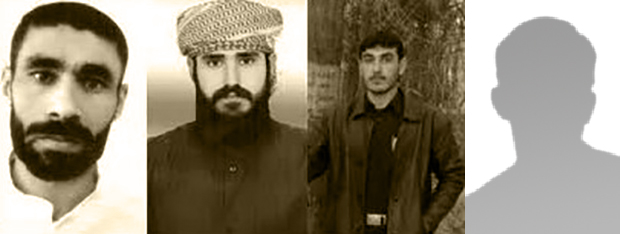The Ahwazi human rights defense organization seriously concern over Iran’s crackdown and execution on Ahwazi Arab dissidents
Four Ahwazi Arab political prisoners have been executed, according to reports received from these families’ prisoners.
Ghazi Abbasi, Abdul-Reza Amir-Khanafereh, Abdul-Amir Mojaddami and Jasim Moghaddam Payam were sentenced to death by Branch 1 of the Ahwaz revolutionary court on August 15, 2012. They were convicted of “enmity with God”, which is a common charge made against critics of the government. The death sentences were upheld by the Supreme Court in February, although it is believed that the lawyer representing Abdul-Reza Amir-Khanafereh was still in the process of appealing against the conviction before the executions.
The human rights activists have voiced concerns over the authorities’ failure to investigate allegations of torture used against the four prisoners in order to extract “confessions” and secure convictions.
The Iranian authorities took the four Ahwazi prisoners from Karoun prison on 3 November and held incommunicado by the Ministry of Intelligence without access to lawyers or family members. They were believed to have been hanged on 2 December.
The men had been taken from Karoun Prison into the custody of the Ministry of Intelligence on 3 November and were denied access to their lawyers and families.
There was confusion as Abdulreza Amir Khanafereh’s family was reportedly contacted by the authorities and told he had been executed, but the families of the other three men were kept in the dark. All four families received confirmation today after three days of confusion and conflicting reports.
One Ahwazi youth from Falahiyeh city also shot dead by the security forces over the protest, which sparked in town following the execution of these four Ahwazi Arab activists. Walid Janami, 25 years old, was killed when the Iranian forces used live ammunition indiscriminately to disperse Ahwazi Arabs who had gathered for the funeral of the four Ahwazi men who executed.
The men were held by the Ministry of Intelligence for months and tortured. During violent interrogations, they “confessed” to belonging to an armed Ahwazi group, a confession they retracted at their trial. They all come from Fallahiyeh (Shadegan) and were the subject of campaigns by international human rights groups. The death sentences had also been condemned by the European Union and a number of governments, including the UK.
The international community should conduct an immediate investigation into the imprisonment, conviction and execution of the four men. There is a worrying trend in human rights abuse with a surge in executions in Ahwaz and other regions since President Hassan Rouhani took office in August. The world must now focus on human rights, particularly executions, following the break-through on nuclear talks in Geneva.”
The Ahwazi human rights defense organization condemns violation against humanity and calls international organizations of human rights to take urgent action on these crimes and stop further executions, arbitrary arrests, tortures and unfair trials.
In a new wave of crackdown against Ahwazi Arabs, an Iranian revolutionary court sentenced death penalty against eleven activists in an unfair trial after subjecting them to torture at intelligence services facilities.
These Ahwazi Arabs have been sentenced to death by a notorious judge, Seyed Mohammad Bagher Mousavi who is currently the subject of EU sanctions.
Mohammad Ali Amouri (37), Hashem Shabani Nejat (33), Hadi Rashdi(39), Seyed Jaber Alboushoukeh and his brother Seyed Mokhtar Alboushoukeh. These detainees were member of Al_Hawer intellectual and cultural institute and in June 2012 by Branch 2 of Ahwaz Revolutionary court and in December 2012, Branch 32 of the Supreme Court confirmed their death sentence.
Ali Chebeishat (47), Sayed Yasin Mousavi (35) were convicted by Judge Seyed Mohammad Bagher Mousavi at Branch 2 of Ahwaz Revolutionary Court. They were members of youth of Shush Cultural Institute. Their forced “confessions”, following months of torture, have been recorded for broadcast by Iran’s English language broadcaster Press TV.
It is time to take collective action and condemn Islamic Republic of Iran firmly and loudly with faith that the world’s cries will be heard this time, and the activists will return to their families safe and sound. We urge your respectful organization to condemn and help to save the innocent activists whom only crime was defending their human rights.
Provided by Rahim Hamid, the Ahwazi human rights activist
Sources:
Ahwazi human rights defense organization
Compagin In Defense of Civil & political Prisoners
